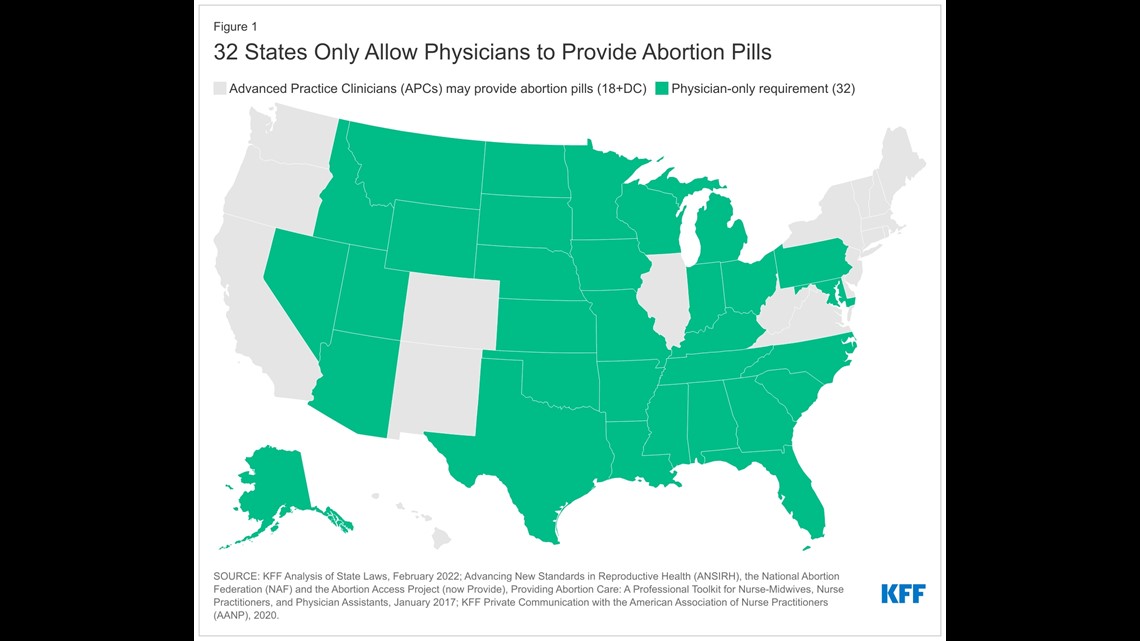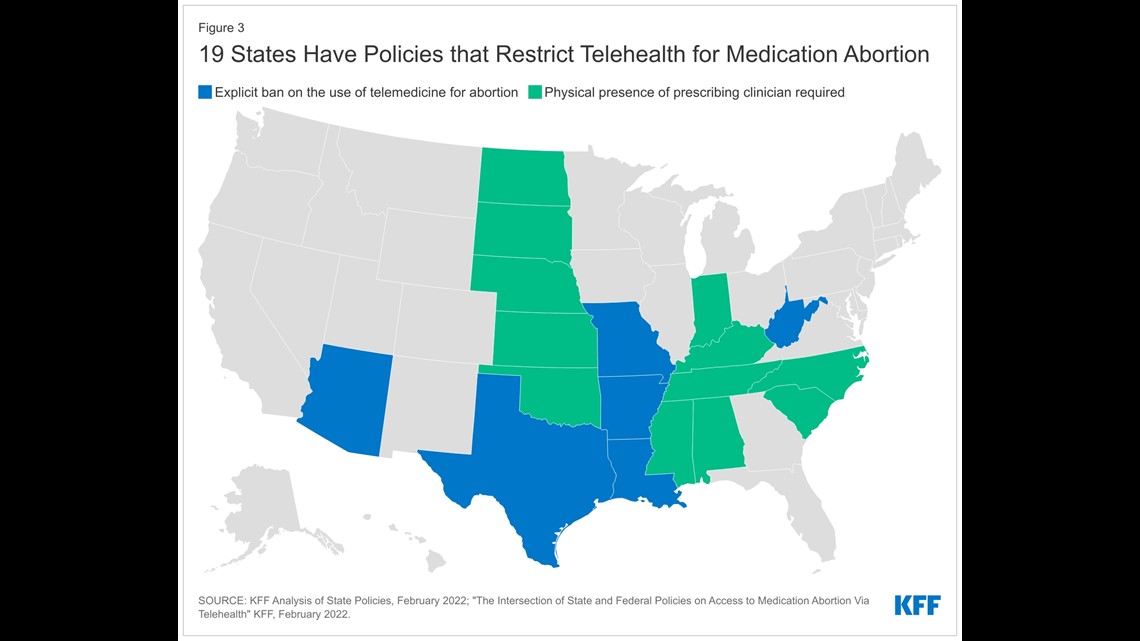WASHINGTON — EDITOR’S NOTE: The U.S. Supreme Court has now effectively overturned Roe v. Wade in a June 24 opinion. This story was originally published May 6, 2022. The information in this story is based on the draft opinion leaked to Politico in May.
Following the leak of a draft opinion from the Supreme Court, the future of Roe V. Wade remains unclear.
At this moment, when state abortion bans seem possible, some on social media are wondering how "medication abortion" would play into this.
Medication Abortion, otherwise known as abortion through pills, is the practice of using a two-drug regimen of Mifepristone and Misoprostol, to terminate a pregnancy.
Our team set out to VERIFY whether a patient could legally order these pills across state or country borders, if abortions became banned in their state, in a post-Roe world.
QUESTION:
If Roe V. Wade is overturned, would it be legal to order abortion pills to a state that has banned the practice, from a jurisdiction where it's legal?
SOURCES:
- Sonia M. Suter, The Kahan Family Research Professor of Law; The George Washington University Law School
- Lawrence O. Gostin, University Professor; The Georgetown Law Center
- Alina Salganicoff, Director for Women's Health Policy; Kaiser Family Foundation
- "The Availability and Use of Medication Abortion", Kaiser Family Foundation
- "Medication Abortion", Guttmacher institute
- "Mifeprex (mifepristone) Information", The U.S. Food And Drug Administration
ANSWER:
If Roe V. Wade were to be overturned, the legality of 'medication abortion' would be set by the state, in which the patient lives.
This would make it illegal for a woman to order the pills in a state that has banned the practice, even if through a telehealth appointment with a doctor in a state that allows abortion.
Our legal experts said that the lack of an enforcement mechanism makes this a legal gray area.
WHAT WE KNOW:
The use of abortion pills continues to be on the rise in the United States. According to the Guttmacher Institute, 'medication abortions' made up 54 percent of all abortions in 2020.
"Medication Abortions" are done through the use of a two-pill regimen. First, a patient would ingest Mifepristone, sold under the brand name Mifeprex. This pill is often referred to as RU-486.
The Kaiser Family Foundation said that this pill blocks a hormone called progesterone, which is "a hormone essential to the development of a pregnancy, and thereby prevents an existing pregnancy from progressing."
After 24-48 hours, the patient will then take Misoprostol, which "works to empty the uterus," according to KFF.
In 2000, Mifeprex was first approved by the FDA, and in December of 2021, the agency allowed for the pill to be prescribed via telemedicine. This would allow for pills to be mailed to a patient, following a consultation with a medical professional.
The pills are recommended for use up to ten weeks of gestation, according to the Guttmacher Institute.
According to KFF, 32 states currently require a physician to prescribe these abortion pills and at least 18 states have restrictions on Telehealth for Medication Abortions.




WHAT WOULD A POST-ROE WORLD MEAN FOR 'MEDICATION ABORTIONS?
According to Sonia M. Suter, a legal expert from George Washington University, the legality of medication abortion would depend on where the mother lives.
That includes patients using telemedicine with a doctor, and living in a state where abortion remains legal.
"The law of the state where the patient is during the telehealth visit is what would determine what is legal or not legal," she said. "So if you're in Texas and Texas bans telehealth visits for medication abortions, then that would be illegal."
But our legal experts said this remains a "grey area," because it is unclear how a state could enforce these laws.
For example, if Roe were overturned and Texas banned abortions, it's unclear how the state could penalize a doctor in Maryland who decides to carry on prescribing abortion pills to a patient in Texas.
"How they would enforce that to the doctor in Maryland is really the question," said Alina Salganicoff from the Kaiser Family Foundation. "Because that doctor is not there. How would they be able to track that and really enforce that?"
Our experts said that this enforcement problem is even more significant for patients ordering from an international company. Since these medical professionals are based overseas, U.S. states would have little recourse for stopping the shipment of these pills.
"It's very hard to enforce that," said Suter. "And the United States government doesn't have authority over other countries. And so I think we're gonna see a lot more of that."
Lawrence O. Gostin, a legal expert at the Georgetown Law Center, said that this brings up the prospect that states will look to pass laws that penalize the patient, rather than the medical professional.
"Ultimately - you know - if the state can't reach people outside the state - they may just decide to kind of criminalize women themselves," he said.
Our experts said that it would be legal for a patient to cross state lines into a state that allows medication abortion, to get pills either through an in-person appointment or a telemedicine appointment. However, the pills would need to be shipped to an address where abortion is legal.
However, our experts said that legislatures in the home state of a patient could attempt to crack down on this behavior.
"So if you had a law," said Suter. "That said anybody who's involved in this person's abortion whether it happens in state X - say Texas - or some other state, anybody could bring a private right of action against the person who played a role in that."
Gostin agreed that many states will likely try to criminalize patient behavior, to try and crackdown on abortions in other states.
"I think the next frontier in the abortion culture wars," he said. "Are going to be to try to restrict or ban medication abortion, and also to criminalize going to another state to get an abortion. And also criminalize those who aid and abet somebody going to another state including - you know - a father, an Uber driver, or whatever it might be."

